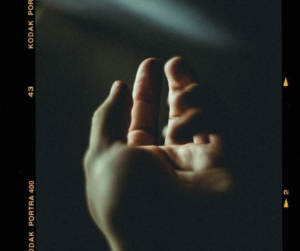
Are you someone who wears their heart on their sleeve? Or are you someone who retreats to a quiet corner to lick your wounds? Do you put a brave face on when your world is falling apart? Or do you weep openly, displaying your anguish for all to see?
What is the politics of pain?
Does displaying a stiff upper lip make you into an unfeeling monster? Does being the opposite make you into a drama queen?
Honestly, I don’t know. All I know is that the way I’ve handled pain has swung both ways. In some instances, I’ve wanted, even needed, the acknowledgement of my tragedy, the sympathy that comes along with that acknowledgement, the understanding that something earth-shattering has occurred and life will never be the same hereafter. At other times, my pain has felt so private that exposing it to the world has felt like a betrayal of my soul. This is pain that I need to process alone, in my own time, allowing the healing to occur without the prying eyes and the whispered platitudes of all and sundry. Which is the correct way? Maybe neither, maybe both.
I read an article recently in which the writer skewered all those who tried to offer her platitudes after the death of her partner and brother in quick succession. She was sick of being “othered”, of her tragedies being reduced to a litany of “atleasts”. We’ve all been there. On both sides of the equation. If you’ve ever suffered a loss, you know how difficult it is to squeeze comfort out of the quotidian banalities that are proffered by the people surrounding you. If you are the one offering the banal and overused words of comfort, you know how difficult it is to say something truly profound, something that can ease the pain, even if only for a short while. As humans, we are ill-equipped to deal with emotional pain. The irony is that this pain is something we will encounter several times over in our lifetimes.
Our responses to our suffering are born out of conditioning. If you come from a culture where mourning is done vocally and proudly, then it can seem perplexing when your efforts to condole are dismissed summarily by a person whose cultural conditioning primes them to mourn alone. If you derive succour from a public outpouring of sympathy, then a closed door response may seem odd to you. Conversely, if you cannot bear for the world and its wife to know your business, you may not be able to wrap your head around someone who actively seeks attention for their state.
There is a lady I follow on Instagram. She is an influencer. Last year, the most awful tragedy befell her when her child committed suicide. For weeks afterwards there was no sign of her on the social media platform, but when she returned, she seemed to be back on form doing what she had always done. I wondered how she could carry on after something so cataclysmic had occurred? How could she smile, try on new outfits and twirl in front of the camera? How?
Then I checked myself. What did I know of her pain, of how many tears she shed daily, of how she mourned her child? How much courage it must have taken her to just get out of bed! She was coping in the only way she knew how, by carrying on with life. Had this life changed forever? Yes, it had. She just refused to show how much to the world. And who was I to judge?
Ultimately, loss and pain, tragedy and grief, spare no one. How we deal with and react to, how we reach out and sympathise, are deeply personal responses with no right or wrong. If kindness and understanding form the basis of all our interactions, the politics of pain becomes moot.
“We look before and after, And pine for what is not; Our sincerest laughter With some pain is fraught; Our sweetest songs are those that tell of saddest thought.”
– Percy Bysshe Shelley.






